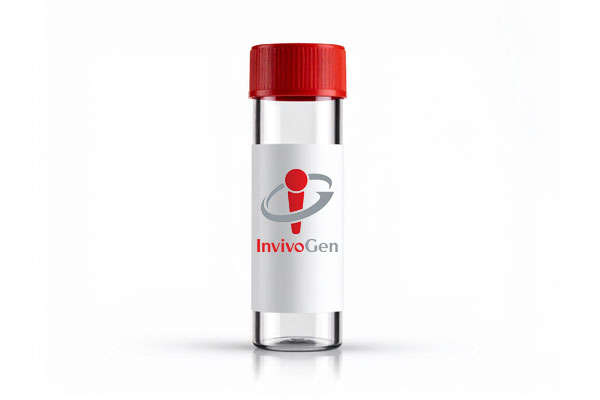
pUNO1-hTLR6-DN
-
Cat.code:
puno1-htlr6-dn
- Documents
Expression-ready ORF Clones
Alias : TLR6, CD286
TLR6-DN (ΔTIR) : Dominant Negative TIR-less TLR6 gene
TLR6 is expressed in spleen and BPL and, acts as a co-receptor with TLR2 to recognize peptidoglycan and the yeast cell wall particle, zymosan [1,2]. Furthermore, TLR6- and TLR2-deficient mice were reported to be hyporesponsive to mycoplasma macrophage-activating lipopeptide-2 kD (MALP-2), a diacylated lipoprotein, suggesting that TLR2 and TLR6 coordinate the response to this ligand. By contrast, TLR2 is able to recognize bacterial lipoproteins triacylated at the N-terminus cysteine residue [3]. Thus TLR6 appears to discriminate between the N-terminal lipoylated structures of MALP-2 and lipopeptides derived from other bacteria.
TLR6-DN is a TIR-less form of the TLR6 gene generated by deleting the TIR domain (468 bp). This truncated TLR6 gene is still able to recognize its ligands but is unable to induce the signaling cascade.
1. Ozinsky A. et al. (2000). Proc Natl Acad Sci U S A 97(25):13766-71.
2. Underhill DM. (2003).J Endotoxin Res. 9(3):176-80.
3. Takeuchi O. et al. (2001). Int Immunol. 13(7):933-40.
Specifications
Human TLR6-DN (pUNO1-hTLR6-DN)
ORF size : 1923 bp
Subclone : AgeI - NheI
Mouse TLR6-DN (pUNO1-mTLR6-DN)
ORF size : 1956 bp
Subclone : NcoI - NheI
Contents
- 20 µg of lyophilized DNA
- 2 x 1 ml blasticidin at 10 mg/ml
![]() Product is shipped at room temperature.
Product is shipped at room temperature.
![]() Lyophilized DNA should be stored at -20°C. Upon receipt, store blasticidin at 4°C or -20°C.
Lyophilized DNA should be stored at -20°C. Upon receipt, store blasticidin at 4°C or -20°C.
![]() Resuspended DNA should be stored at -20°C and is stable for up to 1 year.
Resuspended DNA should be stored at -20°C and is stable for up to 1 year.
![]() Blasticidin is a harmful compound. Refer to the safety data sheet for handling instructions.
Blasticidin is a harmful compound. Refer to the safety data sheet for handling instructions.
DOCUMENTS
Documents
Technical Data Sheet
Certificate of analysis
Need a CoA ?